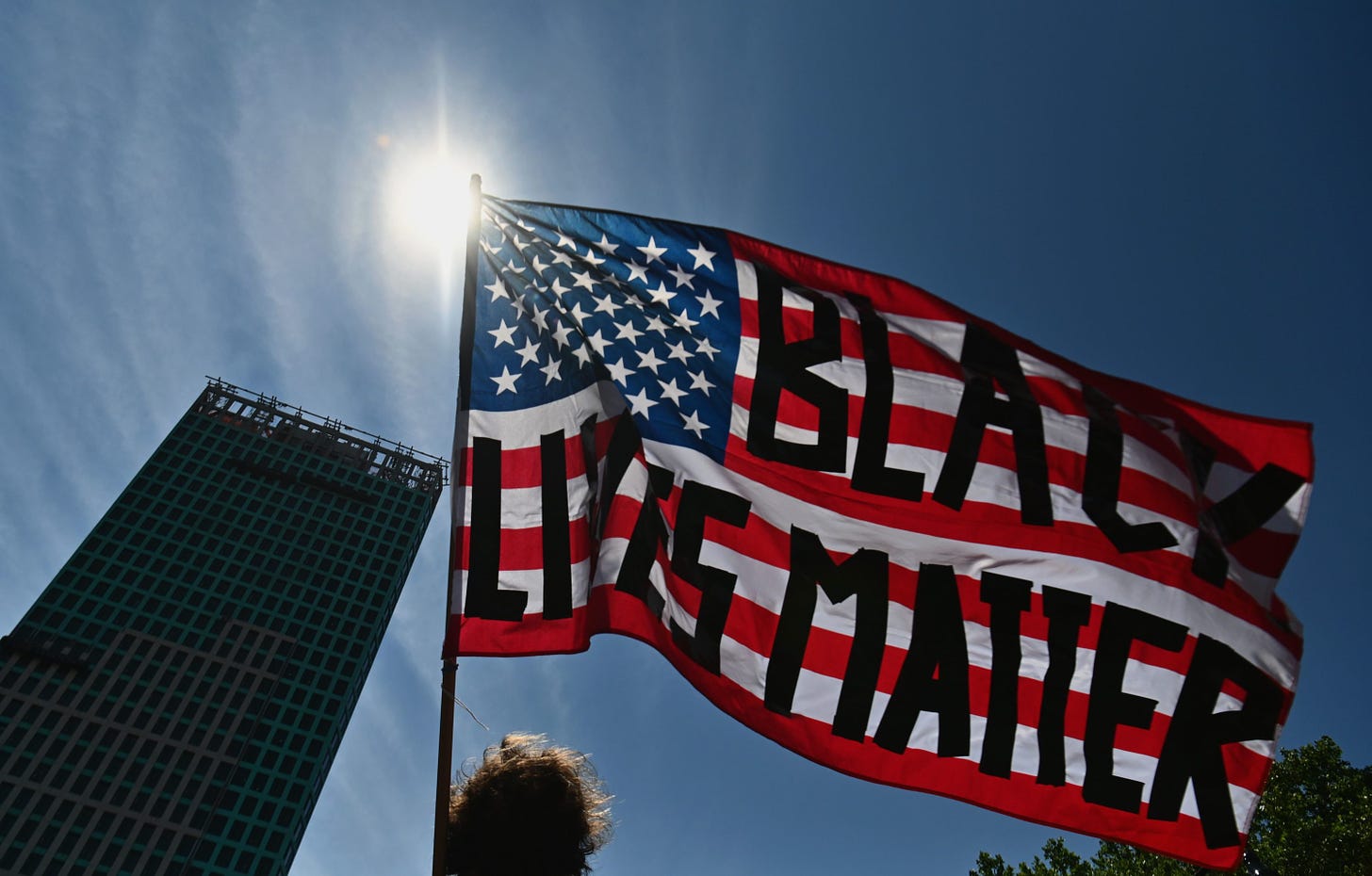How Juneteenth Observance Can Rekindle Our Democracy
Our failings remind us of the importance of our democratic values.

While national holidays are a moment to reflect on the past, they are also an opportunity to draw lessons that are essential for our nation today. July 4 reminds us of both our Declaration of Independence and the enduring importance of democratic values today. Likewise, Memorial Day honors both those who have fallen in service of our democracy and the importance of selfless public service in defense of our nation.
Now, for the first time, Juneteenth is a national holiday. This provides us an opportunity to reflect on the day Union soldiers announced in Galveston, Texas, the news that slavery had been abolished—in 1865, more than two years after the Emancipation Proclamation took effect.
But our rememberance cannot be merely a passive observation of past events. Like Independence Day, Juneteenth National Independence Day—as the holiday will now officially be known—must be at once a celebration, a reminder, and a challenge.We celebrate the universal and lasting importance of democratic values and institutions.We are reminded of the fact that even democratic nations quite often fall short of these values. And, hopefully, we rise to the challenge of our shortcomings by using the opportunity of democracy to create an ever more perfect union. Democracy and democratic values do not lose their importance because of human failing. Human failing reminds us of the need for democracy and democratic values.
While Juneteenth signifies the long-awaited victory of freedom and democracy over injustice in the mid-1800s, it is easy to miss how this story informs the need for democracy today. Reflecting on Juneteenth’s significance amidst our current political context is admittedly challenging as we struggle with stories of police violence, inequality, and debates over voting rights, a foundation of democracy—withmany of our problems disproportionately victimizing people of color.
This first official Juneteenth holiday, 156 years after the Union took Galveston, is the ideal opportunity to remember—actively, with the present and future in mind as much as the past—the contributions made to American democracy by those to whom it failed to keep its promises.
American history is complex and quite often paradoxical. It is characterized both by brilliant articulation of democratic principles and blatant violations of these very principles over centuries. Both realities are true. We can neither dismiss the foundations of our nation because of a history of injustice, nor minimize the reality of injustice to honor the democratic principles upon which our nation was founded. This is the paradox of American history and the very reason why democracy—the structure, the culture, the act of self-government—is needed to reconcile our history and our principles.
This paradox has been obvious to generations of American activists. In his famous 1852 speech "What to the Slave Is the Fourth of July?," Frederick Douglass, an outspoken abolitionist who was enslaved in his early life, both extolled the Constitution as a “glorious liberty document” encompassing our nation’s democratic principles and painted an accurate picture of the brutality of slavery, which stood in such stark contrast to these principles.
Similarly, in his 1967 "Three Evils" speech at the Hungry Club in Atlanta, Dr. Martin Luther King illuminated the gap between our founding principles and the reality of life in the 1960s. In highlighting the work of courageous democracy activists who used sit-ins, Freedom Rides, boycotts, and civil disobedience to protest racial injustice, he observed that
when they decided to sit down at those counters, they were in reality standing up for the best in the American dream and carrying the whole nation back to those great wells of democracy which were dug deep by the founding fathers in the formulation of the Constitution and the Declaration of Independence.
To Douglass and King, the significant shortcomings of American democracy did not negate the importance of democracy itself. Instead, they demanded more of it.
Douglass and King, along with Thurgood Marshall, John Lewis, and many others, have pointed to our founding documents’ commitment to liberty, freedom and equality, as they also pushed our nation to fully live up to these principles. They used democratic institutions and values to close this gap between our aspirational founding principles and daily realities.
The best way to confront our current challenges of political violence, racial injustice, and inequality, is to honor our nation’s democratic principles as previous generations of courageous Americans have honored our nation’s democratic principles by extolling the virtues of those principles, by honestly admitting when our nation falls short of its principles, and working together to strengthen our institutions and society.
On this Juneteenth, let us look back and celebrate that day of emancipation and freedom. And let us also courageously look forward as we redouble our efforts to ensure that the founding principles of our nation are fully realized for every American.



